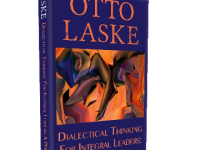Developmental coaching, announced as a breakthrough in the form of an evidence-based discipline in 2003, has had a sorry history ever since. Since this discipline never acknowledged the -- empirically validated -- distinction between the social-emotional (Kegan 1982) and cognitive development of individuals (Basseches 1984), its impact was reduced to half by its practitioners' fixation on "stages" (whether Loevinger's or Kegan's) and the rampant speculative ideologies derived therefrom. Coaching organizations defensively pushed empirical research evidence into the background while in the meantime co-opting the term 'developmental'. Only a tiny number of coaches learned developmental interviewing and listening, and then only in the social-emotional, not the cognitive, domain. Consequently, developmental coaching was unable to withstand the onslaught of purely behavioristic coaching lore that increasingly gained the field in the form of ICF. the international coach federation. As a result, developmental coaching -- dignified by Wilber's writings in which he only paid lip-service to cognition -- became a misnomer. Having failed to integrate existing research into the unfolding of complex thinking in adults, today (2018) this discipline is only a shadow of its original potential. Relegated to a perspective of 'continuous improvement' -- the lowest level of cognitive functioning in organizations and... Read More...
Tag: Development
Invitation pour les consultants et coach français de renouveller leur profession
Comment les consultants et coach francais peuvent-ils renouveller leur profession utilisant le CDF (Constructive Developmental Framework)? https://www.paypal.com/webapps/hermes?token=5MN6985866069092K&useraction=commit&mfid=1488977403882_1d069d5a8c123#/checkout/login C’est là la question qui se pose se livre sur la découverte du potential humain, allant plus loin que les abstractions des sciences sociales contemporaines. En recherchant de nouvelles clefs pour l’engagement de l’adulte dans le processus de développement (non seulement dans les organizations commerciales), ce livre ouvre la voie a l’évolution du professional aussi bien que de l’être humain. C’est un livre important pour tous les professionnels qui accompagnent les adultes dans leur croissance et la réalisatin de leur potential, introduisant a la fois une perception profonde des “clients” ainsi qu’une réflexion sur soi-même. Dans cette facon, le livre peut induire chez soi une transformation profonde de son être, donnant un nouvel élan dans sa vie professionnelle ainsi que privée. Vour pourrez réévaluer tout ce que vous avez appris jusqu’a maintenant d’un point de vue tres personnel, et aurez l’opportunité d’analyser votre propre développement. Programme Francais CDF Philips-Laske 2009 Read More...
Executive Development as Adult Development
This article, chapter 9 of Demick et al’s Handbook of Adult Development (Springer 2002), tries to escape the tunnel vision of organizational theorists and consultants alike who, while glorifying leaders, cannot penetrate to the adult-developmental origins of leadership and get lost in psychological or spiritual speculations, or else lists of competences. Instead, the article adopts the distinction between "ontic" and "agentic" development, that is, the development that happens over human resources' life span development, on one hand, and the organizational mechanisms put in place to "develop" them, on the other. The article conceptualizes executive development as a lawful developmental modification of an individual's professional agenda and universe of discourse in the cognitive and social-emotional sense or, to speak with E. Jaques, his/her Size of Person. Refining Argyris, three levels of professional agenda are distinguished. M. W. McCall Jr.'s (1998) and D. T. Hall's writings (1996) are focused on in order to clarify contemporary theorists' views, referring to McCall's "five dilemmas" of human development in organizations. The article focuses on the dialectic of managerial strengths and weaknesses, the organizational shift to the "Proteian" (internal) career, and introduces Kegan's and Basseches' work alongside with empirical findings of the author. Laske, Executive Development... Read More...
Invitation for the workshop “Rewiring Team Dynamics: Building Collective Intelligence”
Dear IDM Friend, May I invite you to attend the International Workshop on Rewiring Team Dynamics: Building Collective Intelligence in Mechelen (Belgium) from June 17th - June 19th . The way we work is changing. So is the nature of teamwork at all levels in the organization changing. The age of ‘command & control’ in teamwork is shifting towards a ‘collaborate & communicate’ approach. We all know that innovation and creativity mainly takes place in a collaborative context. Nevertheless teamwork remains for a lot of organizations a confounding mystery. Diversity is rarely used in the most effective way. Most of the team’s potential remains unlocked. Otto Laske and myself have developed an approach that reveals the principles by which we can unlock the potential of colleagues, that can release the creative potential of your organization. Building upon the Constructive Developmental Framework we have developed a set of tools both practical yet deep in wisdom. The Workshop ‘Rewiring Team Dynamics’ helps you practice ways by which to create collective intelligence and reveals the learnable art of thinking productively together. The workshop is based on a system of thought forms that help team members unravel their own resources for thinking in a... Read More...
How Do You Teach Your Client to Think Developmentally?
The article is based on a dialog between a mentor and a behavioral coach who desires to learn to think developmentally. After an introduction on coaching focused on clients’ Frame of Reference, the four individual dialogs deal with the three aspects of human capability, the nature of developmental scores, the nature of behavioral “need-press” scores, and the synthesis of CDF data for use in coaching practice. Laske 2007 Mentoring a Behavioral Coach to Think Developmentally Read More...
Introduction to Cognitive Growth: a possible journey from age 25-100
In this short video I give listeners some examples of differences in phase of cognitive development individuals are typically in. My goal is to sensitize listeners to asking "where am I myself presently as to the structure of my thinking, and how does this determine the world I am seeing as real?" Read More...
